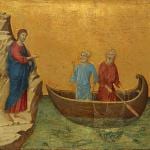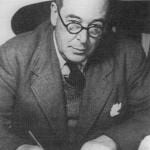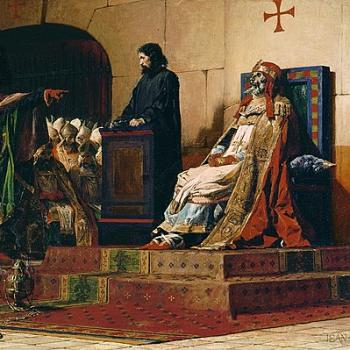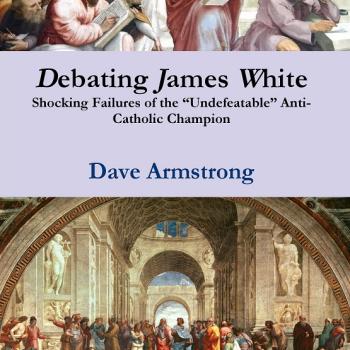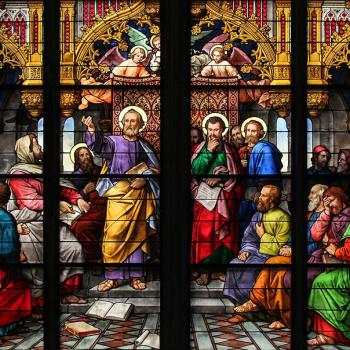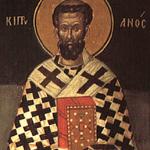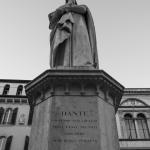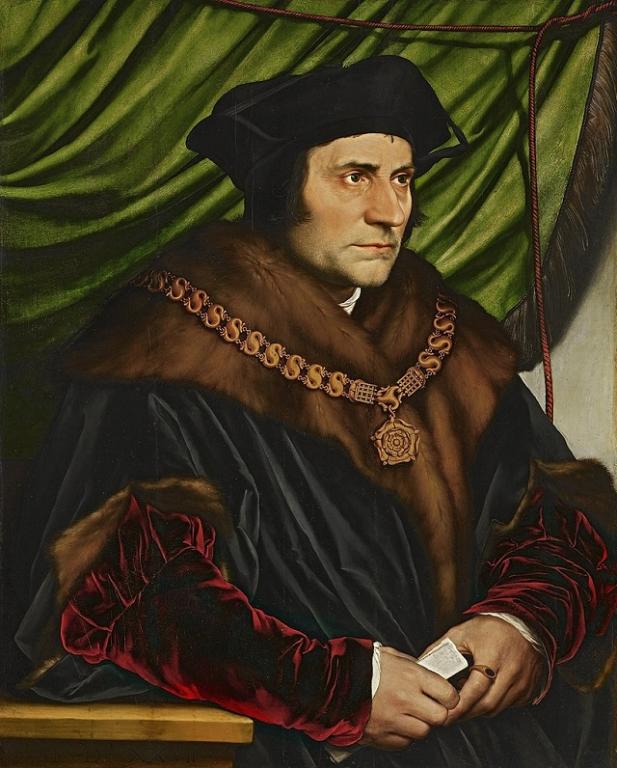
Here I present biblical texts having to do with this topic (RSV), followed by commentary from one or more great historic Catholic apologists. These excerpts are all drawn from my 2012 book, Classic Catholic Biblical Apologetics: 1525-1925. Bibliographical briefs of each apologist can be read on that book page. Source information will be added at the end (below).
*****
John 3:3-5, 9-10 Jesus answered him, “Truly, truly, I say to you, unless one is born anew, he cannot see the kingdom of God.” [4] Nicode’mus said to him, “How can a man be born when he is old? Can he enter a second time into his mother’s womb and be born?” [5] Jesus answered, “Truly, truly, I say to you, unless one is born of water and the Spirit, he cannot enter the kingdom of God. . . .” [9] Nicode’mus said to him, “How can this be?” [10] Jesus answered him, “Are you a teacher of Israel, and yet you do not understand this?”
Nicholas Cardinal Wiseman I did indeed remark, that, whereas in the old law we had an express provision made lor a written code, that yet the most important doctrines, probably, which were known by the Jews, and which our Saviour found existing at his time, were not contained in that volume, but had been handed down by oral tradition. I showed this to be the case with respect to the doctrine of the Trinity; with respect to the doctrine of the Word of God being incarnate, and suffering for the redemption of mankind; I showed this regarding the doctrine also of a future state; and any clear apprehension of rewards and punishments in the next life. I might have added another very important dogma, especially as it is considered now-a-days, and that is, the doctrine of spiritual regeneration —for it is impossible to read our Saviour’s discourse with Nicodemus, when Nicodemus objects, “How can a man that is old be born again?” and to observe our Saviour’s answer, “Art thou a master in Israel, and knowest not these things?” and not feel at once satisfied, that among the teachers of the Jews, that among the doctors of that nation, there was a dogma corresponding exactly to this; and that our Saviour consequently was justified in chiding Nicodemus for making an objection which he himself should have been able to answer. And so it is, in fact, that we find among the Jews precisely the same term, that of being born again, or regenerated, applied to those proselytes who become members of the Jewish faith, and perhaps, more particularly from a word in special use and favour among the pharisees. But in the old law, you will not find this doctrine ever laid down, you will not find it, I will be bound to say, even so much as alluded to—at least, not so alluded to, as any one, without the key drawn from the New Testament, could have possibly discovered it. Thus we find, on the one hand, in the written law of old, where provision was made for its existence, that yet the most important doctrines were handed down by tradition. (p. 203)
John 16:12 I have yet many things to say to you, but you cannot bear them now.
St. Francis de Sales I ask you, when did he say these things which he had to say? Certainly it was either after his Resurrection, during the forty days he was with them, or by the coming of the Holy Spirit. But what do we know of what he comprehended under the word: — “I have many things,” &c. — if all is written? It is said indeed that he was forty days with them teaching them of the Kingdom of God; but we have neither all his apparitions nor what he told them therein. [Acts 1:3: “To them he presented himself alive after his passion by many proofs, appearing to them during forty days, and speaking of the kingdom of God.”] (pp. 148-149)
John 16:13 When the Spirit of truth comes, he will guide you into all the truth; for he will not speak on his own authority, but whatever he hears he will speak, and he will declare to you the things that are to come.
St. Thomas More He doesn’t say that the Spirit will “write” to you or whisper in your ear, but he will lead you, will form you interiorly, and with His breath will show your hearts the way to all truth. Was it the Apostles, here addressed by Christ, to whom the way was to be shown? Were they alone told, “I am with you to the consummation of the world”? [Matt 28:20] Who can question the direction of this message to the Church? Will not the Holy Spirit show her the way to all truth? Was she not told, “Go, preach the Gospel to every creature”? [Matt 28:19] Did they read the Gospel or preach it? And did Christ cast the new law in bronze or strike it on stone tablets, commanding that everything else be considered valueless and cast out? [Response to Luther, 1523] (p. 116)
John 20:30 Now Jesus did many other signs in the presence of the disciples, which are not written in this book;
St. Thomas More These things which you have remarked as absent from the other scriptural books also, and of which John says that the whole world cannot contain them – aren’t they to be regarded as miracles at least? Wouldn’t you also find that an ignorance of many of them would jeopardize faith? [Response to Luther, 1523] (p. 116)
John 21:25 But there are also many other things which Jesus did; were every one of them to be written, I suppose that the world itself could not contain the books that would be written.
St. Thomas More Some of the deeds of Christ were handed down to the faithful by tradition rather than by the written word, and were forever after preserved in the faith of the Church. Why is it not reasonable to believe certain truths only on the authority of the Church, since we accept the Gospels themselves only on the same authority? If none of the Gospels had ever been written down, there would still remain a Gospel written in the hearts of the faithful, these tablets being much more ancient than all the codices of the Evangelists. The sacraments would remain, and these same sacraments, I am sure, are older than all the books of the Gospels. It is no argument for Luther to say that a man receives a sacrament in vain if its institution is not recorded in the Gospels. [Response to Luther, 1523] (p. 112)
James Cardinal Gibbons For instance, most Christians pray to the Holy Ghost, a practice which is nowhere found in the Bible. (p. 89)
Romans 10:14-17 But how are men to call upon him in whom they have not believed? And how are they to believe in him of whom they have never heard? And how are they to hear without a preacher? [15] And how can men preach unless they are sent? [16] But they have not all obeyed the gospel; for Isaiah says, “Lord, who has believed what he has heard from us?” [17] So faith comes from what is heard, and what is heard comes by the preaching of Christ.
Francisco Suárez For the Holy Spirit immediately provides everyone in some way with help for receiving or handing on supernatural doctrine, according to the office or need of each. And so he helps all the faithful and illuminates them interiorly for believing what he teaches through his preachers . . . God by a common law does not teach men save through men. (p. 158)
St. Francis de Sales I should indeed have wished to be heard, as the accusers have been; for words in the mouth are living, on paper dead. “The living voice,” says S. Jerome, “has a certain indescribable secret strength, and the heart is far more surely reached by the spoken word than by writing.” This it is which made the glorious Apostle S. Paul say in the Scripture: How shall they believe him of whom they have not heard? And how shall they hear without a preacher? . . . Faith then cometh by hearing, and hearing by the word of Christ. My best chance, then, would have been to be heard, in lack of which this writing will not be without good results, . . . (p. 1)
1 Corinthians 11:23-30 For I received from the Lord what I also delivered to you, that the Lord Jesus on the night when he was betrayed took bread, [24] and when he had given thanks, he broke it, and said, “This is my body which is for you. Do this in remembrance of me.” [25] In the same way also the cup, after supper, saying, “This cup is the new covenant in my blood. Do this, as often as you drink it, in remembrance of me.” [26] For as often as you eat this bread and drink the cup, you proclaim the Lord’s death until he comes. [27] Whoever, therefore, eats the bread or drinks the cup of the Lord in an unworthy manner will be guilty of profaning the body and blood of the Lord. [28] Let a man examine himself, and so eat of the bread and drink of the cup. [29] For any one who eats and drinks without discerning the body eats and drinks judgment upon himself. [30] That is why many of you are weak and ill, and some have died.
St. Thomas More Is this delivery made in the form by which he received it – unwritten? Truly, until the writing of the letter, he had used no other form of transmission. He had written neither the Corinthians, nor the Romans, nor any other people. If Paul had chosen the permissible form of direct verbal communication on those occasions when he did write, you would now be doubting those articles of faith based on the Pauline Epistles. [Response to Luther, 1523] (p. 116)
2 Thessalonians 2:15 So then, brethren, stand firm and hold to the traditions which you were taught by us, either by word of mouth or by letter.
St. Thomas More . . . if as you consistently affirm, all extrascriptural matter is to be maintained only freely and none of it held fast by faith, what is the meaning of this Apostolic admonition . . .? The preservation of both word and letter is equally charged by the Apostle. Extrascriptural matter was thus handed down, and on a binding, not a take-it-or-leave-it basis! What do you say to that, Luther? [Response to Luther, 1523] (p. 115)
Nicholas Cardinal Wiseman . . . showing again, that there were two classes of truth that had been committed to them; that some were to be written, and that others were unwritten, and that both were exactly on an equal footing, that both were to be received with equal respect, that both were to be observed in the church with equal punctuality, and both, consequently, committed to those who should succeed them. When I find these express testimonials; when I find, in such a marked manner, on the one hand, the principle of authority, and, on the other, the principle of an oral teaching; and, at the same time, the total silence upon, any thing like a written code of Christianity which was to be produced; can I, for a moment, hesitate as to which was the method pursued by the apostles, and what are the grounds on which they built up their churches? Must I not conclude that it was upon this twofold principle, of authority to teach vested in the pastors, and the unwritten code whereby they were to teach, as well as by the written word? (p. 86)
1 Timothy 6:20 O Timothy, guard what has been entrusted to you. Avoid the godless chatter and contradictions of what is falsely called knowledge,
Nicholas Cardinal Wiseman . . . we find, from the very beginning, all the ground-work of the system based essentially upon the doctrine of authority, and upon that of authoritative teaching. Not even so content, my brethren, we find that they gave the most minute instructions to these individuals and to the churches; not, indeed, carefully to read the words of Scripture when they should be written—for there is not a hint that they were ever to be recorded (I speak, of course, of the New Testament)—but they were to be careful to preserve the doctrines which were given into their hands. . . . Remember those doctrines which I have given to you, which may easily be perverted in words; take care even to retain the very terms wherein these doctrines have been delivered; lest, by the opposition of false knowledge”—in which words St. Paul is hinting at the earliest errors that crept into the church—”beware, therefore, lest any thing should be changed even in an expression wherein faith is contained.” Now, had his idea been, that the whole of religion was to have been recorded in a book, and that the words of that book were to be the only text on which religion was to be grounded, assuredly it could not have been necessary to inculcate with such care this preservation of doctrine, even as the words delivered in charge to the bishops of the church—not to the flock, not to the congregation, nor to each member of it, but to him who was to render an account to God for their souls. (p. 85)
2 Timothy 1:13-14 Follow the pattern of the sound words which you have heard from me, in the faith and love which are in Christ Jesus; [14] guard the truth that has been entrusted to you by the Holy Spirit who dwells within us.
Nicholas Cardinal Wiseman . . . is not this, therefore, the foundation of ecclesiastical tradition? He does not tell Timothy, not to write these words, not to deliver this epistle into the hands of those that succeeded him; but those things he had heard before many witnesses, to commit these to faithful men, that is, to those who have the care of others, those in whose prudence, in whose virtue, and in whose sincerity, he could fully rely; that so they, in their turn, may be able to communicate them to others. Then, does not this imply a system of oral teaching, a system of divine authority, grounded on that link which should be established between the later teachers and the apostles to whom they could trace their doctrines? (pp. 85-86)
Karl Adam All the doctrinal controversies of Christianity are dominated by this Christo-centric conception of the Church’s teaching authority. It is because Christ is the sole canon of her preaching, that the Church adheres so obstinately and so rigidly to His traditional message. It is for this reason that she can endure no modernism, no fraternizing with the spirit of the age. Her teaching is, and aims at being, nothing else but a handing on of that message of Christ which was proclaimed by the apostles. St. Paul enjoined his disciple, Timothy, to guard that which had been committed to him (Timothee, custodi depositum! 2 Tim. i, 14; cf. 1 Tim. iv, 16; vi, 14). That is exactly the doctrinal program of the Church. Her conservatism and her traditionalism derive directly from her fundamentally Christo-centric attitude. (p. 23)
Hebrews 8:10 This is the covenant that I will make with the house of Israel after those days, says the Lord: I will put my laws into their minds, and write them on their hearts, and I will be their God, and they shall be my people. (cf. 10:16)
St. Thomas More Can God’s own word as set down by the Apostle leave Luther untouched, . . .? He makes no mention of stone or wood, for as the old law was stamped by Him upon external stone, so will the new be inscribed with His own finger in the book of the heart; that which existed so briefly upon the hardest material will be made to last forever on the softest. So it has pleased God to show His power. Though the old stone tablets were quickly shattered, the new remain. The word of God will remain forever uneffaced in the heart of man. The heart, the Church of Christ, will forever contain the true Gospel of Christ, written there before any of the Evangelical books. However ingenious the apparent scriptural evidence heretics may bring against the true faith, God has engraved His law in such a way that it is impervious to their guile. The strength of this spring has preserved the faith of Christ against assaults upon both His mother and Himself from their respective enemies, Helvidius and Arius . . . Whether supported by writing or not, the Church of Christ has never doubted the authenticity of her inspiration by the Holy Spirit . . . the spirit of God cannot contradict Himself and it is certain that Christ would not disappoint His Church on the essentials of her faith. [Response to Luther, 1523] (pp. 116-117)
1 John 2:27 but the anointing which you received from him abides in you, and you have no need that any one should teach you; as his anointing teaches you about everything, and is true, and is no lie, just as it has taught you, abide in him.
Francisco Suárez . . . Christ too promised both his own assistance and the Holy Spirit to teach the Church all truth, namely all truth necessary and opportune for any time, to which most of all has regard the true and certain understanding of Scripture in necessary matters. But the second part, wherein we deny that this promise was made to the individual faithful, we prove it to begin with by requiring some place of Scripture in which the promise was made, which request we can deservedly make of those who deny that anything is to be believed which is not written; but there is no place, not even an apparent one, that they can bring forward. . . . For Paul teaches, 1 Corinthians 12, Romans 12, and Ephesians 4, that there are various gifts of the Spirit in the Church, among which are put the gift of prophecy, the interpretation of speech, the discerning of spirits . . . (pp. 157-158)
SOURCES
St. Thomas More (1478-1535) The Essential Thomas More (edited by James J. Greene and John P. Dolan; New York: Mentor-Omega Books, 1967)
Francisco Suárez (1548-1617) Defense of the Catholic and Apostolic Faith Against the Errors of Anglicanism (translated by Peter L. P. Simpson, 2011)
St. Francis de Sales (1567-1622) The Catholic Controversy (translated by H. B. Canon MacKey; third revised edition, London: Burns & Oates, Ltd. / New York: Benziger Brothers, 1909)
Nicholas Cardinal Wiseman (1802-1865) Lectures on the Doctrines and Practices of the Roman Catholic Church (London: J. S. Hodson, 1836)
James Cardinal Gibbons (1834-1921) The Faith of Our Fathers (Baltimore: John Murphy Company, 93rd revised and enlarged edition, 1917)
Karl Adam (1876-1966) The Spirit of Catholicism (translated by Dom Justin McCann; Garden City, New York: Doubleday Image, 1954 [originally 1924] )
*
My book royalties from three bestsellers in the field (published in 2003-2007) have been decreasing, as has my overall income, making it increasingly difficult to make ends meet. I provide over 2500 free articles here, for the purpose of your edification and education, and have written 50 books. It’ll literally be a struggle to survive financially until Dec. 2020, when both my wife and I will start receiving Social Security. If you cannot contribute, I ask for your prayers. Thanks! See my information on how to donate (including 100% tax-deductible donations). It’s very simple to contribute to my apostolate via PayPal, if a tax deduction is not needed (my “business name” there is called “Catholic Used Book Service,” from my old bookselling days 17 or so years ago). May God abundantly bless you.
***
Photo credit: Sir Thomas More, by Hans Holbein the Younger (1497/1498-1543) [public domain / Wikimedia Commons]
***


